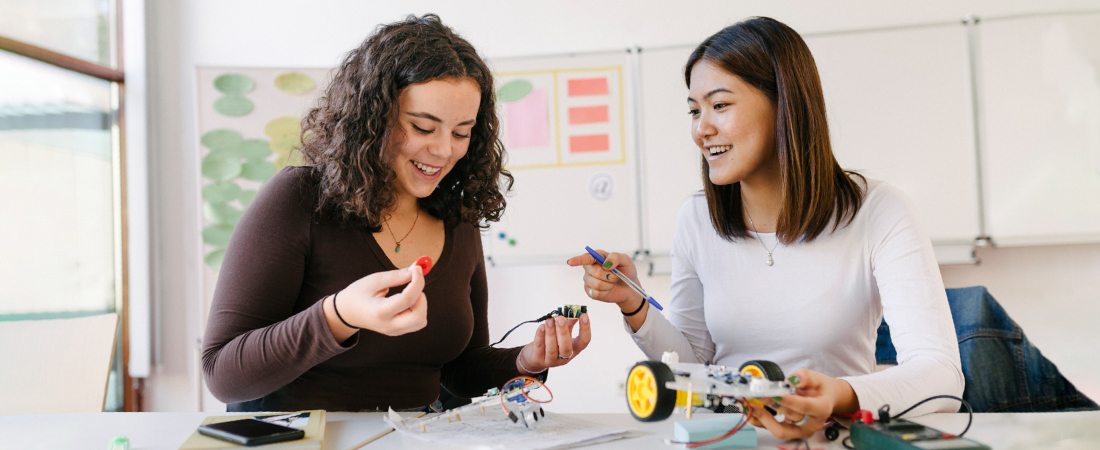New Program Uses Mentorship to Support STEM Education for Autistic Students

Many autistic youth and young adults possess skills and interests that are needed in the modern STEM workforce. However, autistic people remain underrepresented in STEM careers due in part to a lack of transitional supports between high school and college.
A new EDC project funded by the National Science Foundation (NSF) aims to use mentorship to close this gap.
Making Mentors: Enhancing Access to STEM Careers for Autistic Youth through Mentorship Programs in Makerspaces (DRL 2241350) will build on existing work supported through two previous NSF grants (DRL-1614436, DRL-1850289). In those projects, EDC developed the IDEAS Maker Program with New York University (NYU), the New York Hall of Science, SRI, and autism inclusion schools in New York City.
“This award is an exciting next step for our work,” says principal investigator Wendy Martin. “We are looking forward to continuing our relationship with NYU and the New York City Department of Education. We are also very happy to welcome the College of Staten Island (CSI)/The City University of New York as a partner.”
This new project will pair autistic college students from NYU and CSI who major in STEM fields with autistic high school students who are participating in IDEAS. Mentors will work with mentees on maker projects, learn about their interests and strengths, and talk about their own experiences transitioning from high school into STEM majors in college. Mentors will be trained by the Wasserman Center for Career Development at NYU in effective mentoring strategies.
Mentors will meet with their mentees at least twice a month to work on a project, share insights, and get to know each other. The mentors and project team will meet weekly to check in on their experiences, plan activities and field trips based on mentee interests, and address any issues that might arise.
As part of the project, researchers from EDC will explore whether the mentorship program fosters increased self-identification with STEM fields, self-advocacy skills, and improved quality of life among all participants, both mentors and mentees. Researchers will also examine the impact that specific aspects of the mentorship experience have on the effectiveness of the program.
Research from this project will advance knowledge of how strengths-based, participatory approaches can support autistic youth in pursuing STEM career pathways.